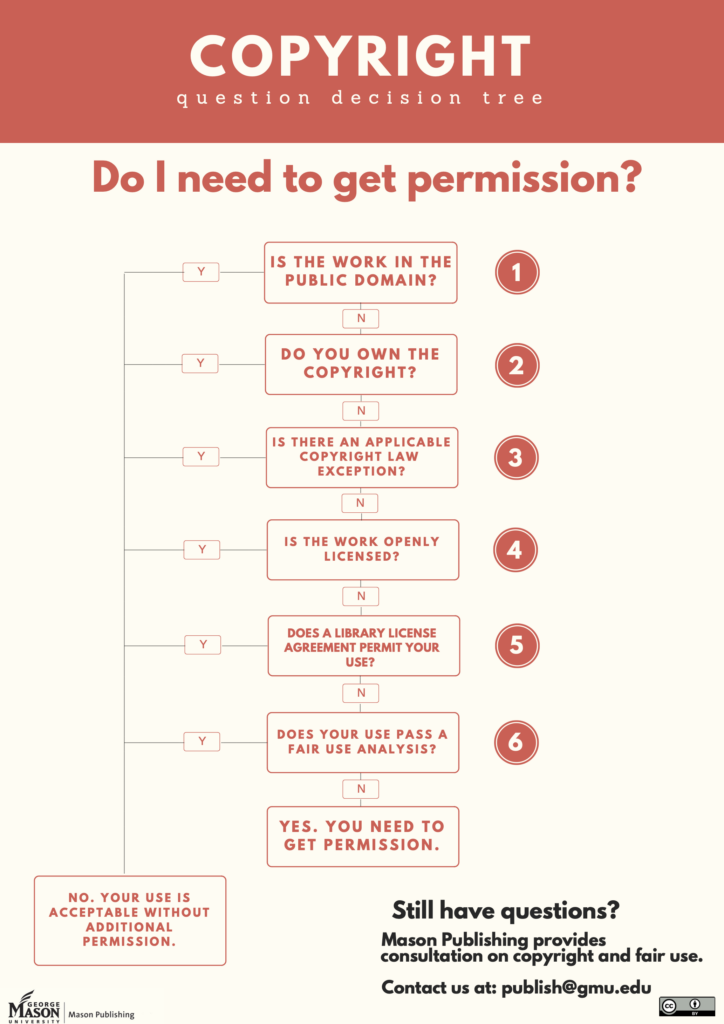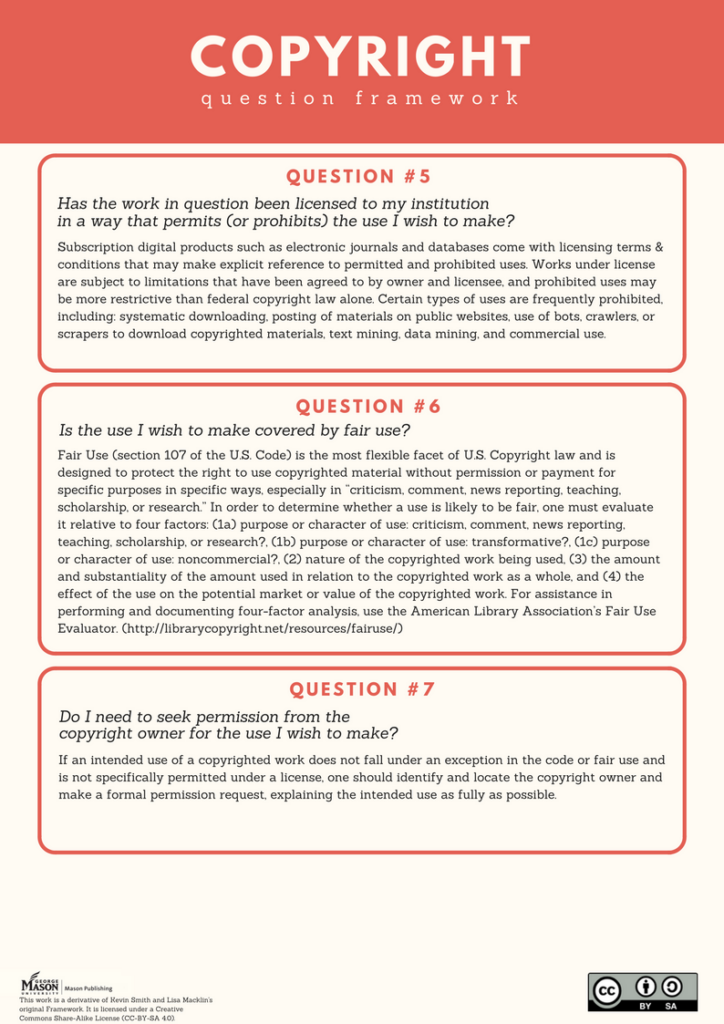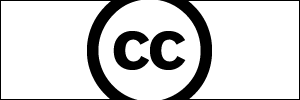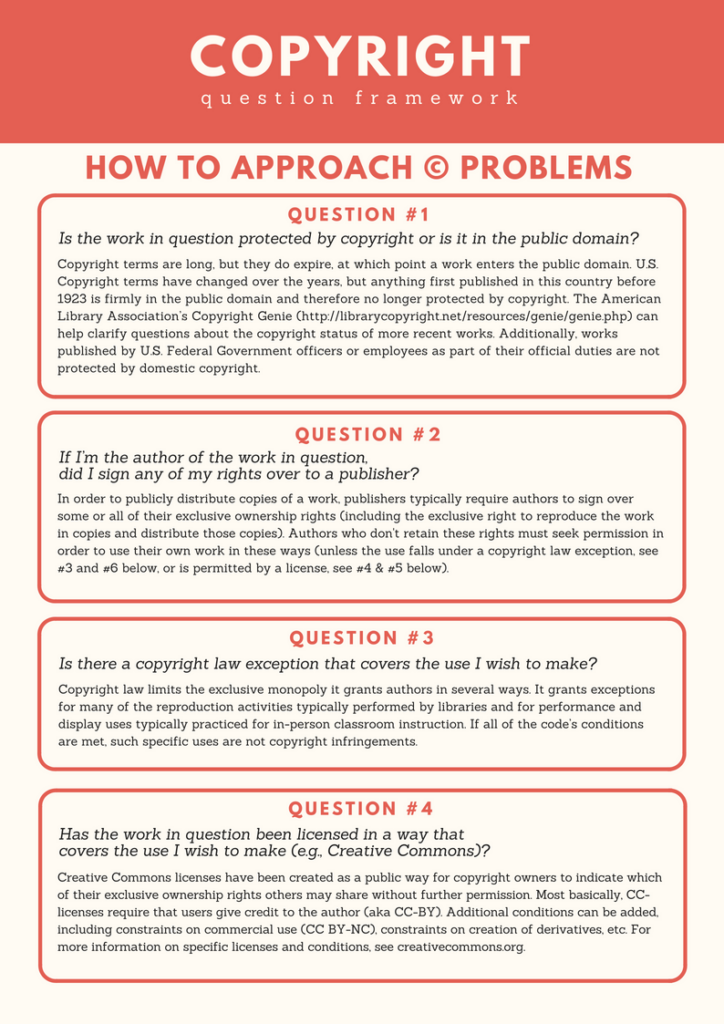Copyright seems like a fairly straightforward concept: a person owns their own original content, or “intellectual property,” and others must acknowledge that ownership (by seeking permission) to use that property for their own gain.
But, intellectual property is not like other kinds of property. The U.S. Constitution indicates that exclusive authorship rights may be secured only for “limited times.” And, in the academic world, where teaching, learning, and new ideas must always engage with and build on the ideas that have come before, things can get complicated. Copyright, though limited, lasts a long time, and it can be hard to find some copyright owners (or the owner’s heirs) to grant permission. Often, legal protection for authors and publishers can seem to be in conflict with what the Constitution terms “[promotion of] the progress of science and useful arts.”
Mason Libraries are here to help you make informed decisions about how best to use copyrighted materials and about how to manage your own rights in work you’ve created. For a step-by-step, online approach to analyzing most copyright questions, you may consult the Copyright Question Framework infoguide. For a downloadable PDF version of the framework, scroll down.
“Do I need to get permission?”
Figuring out whether you have the right to use an article, image, video, etc. depends on several factors.

Do I Need to Get Permission PDF
Copyright Question Framework PDF






